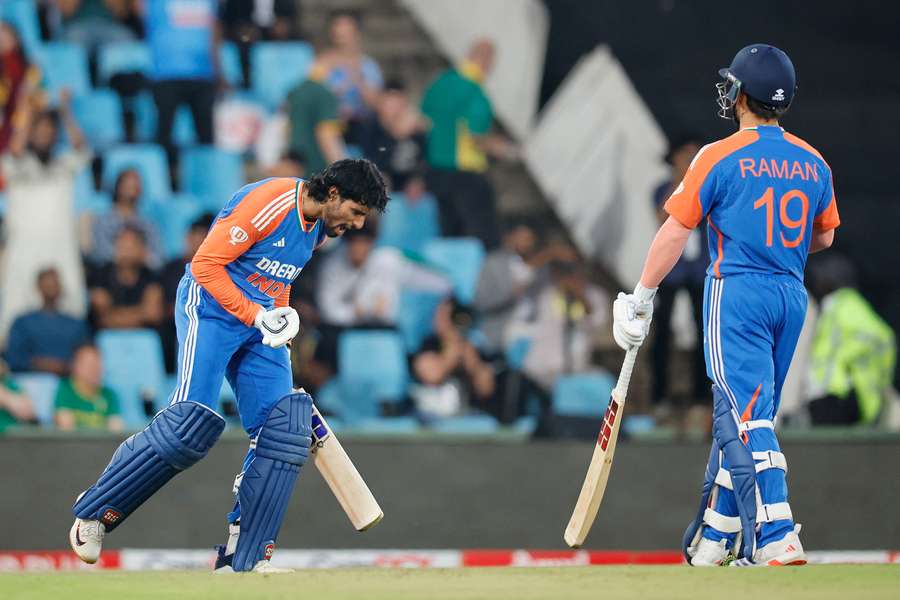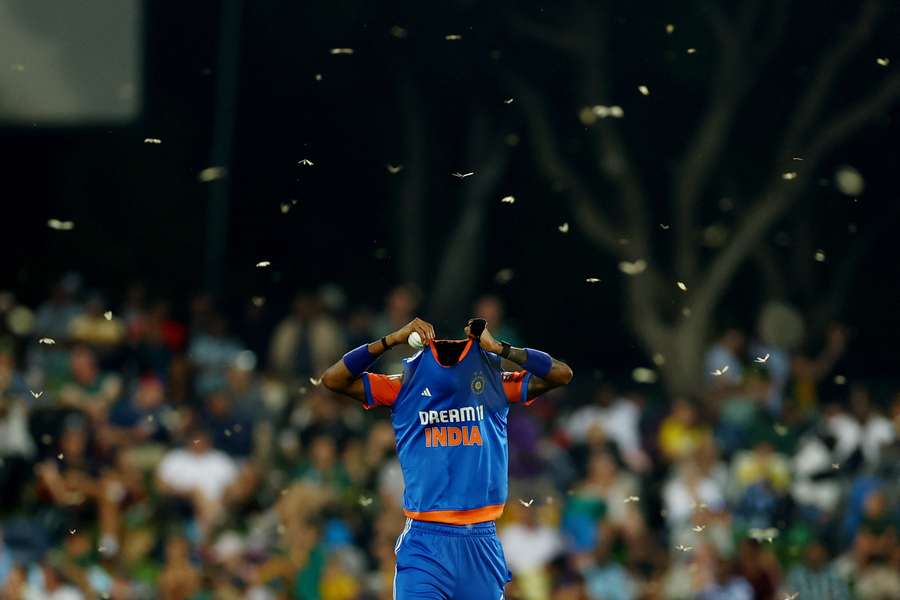Varma ton powers India to T20 victory over South Africa as flying ants halt play

The left-hander made an unbeaten 107 off 56 balls in India's total of 219-6.
South Africa were restricted to 208-7, giving India an unbeatable 2-1 lead in the four-match series.
"I was waiting for this for a long time, coming back after injury," Varma told host broadcaster SuperSport, referring to a hand injury which restricted his playing time in 2024.
Varma epitomised the "fearless cricket" espoused by captain Suryakumar Yadav.
Promoted to number three in the batting order, he faced the third ball of the match after Sanju Samson was bowled for a second successive duck by Marco Jansen.
He immediately went on the attack, hitting the second and third balls he faced from Jansen for four and six as he launched an innings which included eight fours and seven sixes.
"I was just thinking I have got an opportunity to bat at number three and I just wanted to express myself," he said.
"We played the brand of cricket we wanted to play," said Suryakumar, who revealed that Varma had requested a promotion up the batting order.
"He asked for it and he responded," said the captain.
Fellow left-hander Abhishek Sharma was similarly aggressive, hitting 50 off 25 balls with three fours and five sixes in a second-wicket stand of 107 off 52 deliveries with Varma.
The South African reply was an over old when the players were forced from the field for almost 30 minutes by a swarm of flying ants.

When they returned, India's spinners squeezed the run-rate in the middle overs, though the home side were kept in the contest by Marco Jansen's career-best 54 from 17 balls and Heinrich Klaasen's 41 from 22 deliveries.
Klaasen hit three sixes off successive balls from leg-spinner Varun Chakravarthy, India's most successful bowler in the first two matches.
Jansen thrashed a 16-ball half-century before falling leg before wicket to left-arm opening bowler Arshdeep Singh off the third ball of the final over.
Put under pressure by Abhishek and Varma, South Africa bowled three no-balls and 10 wides, which ultimately proved the difference between the two teams, with India bowling only one wide.
